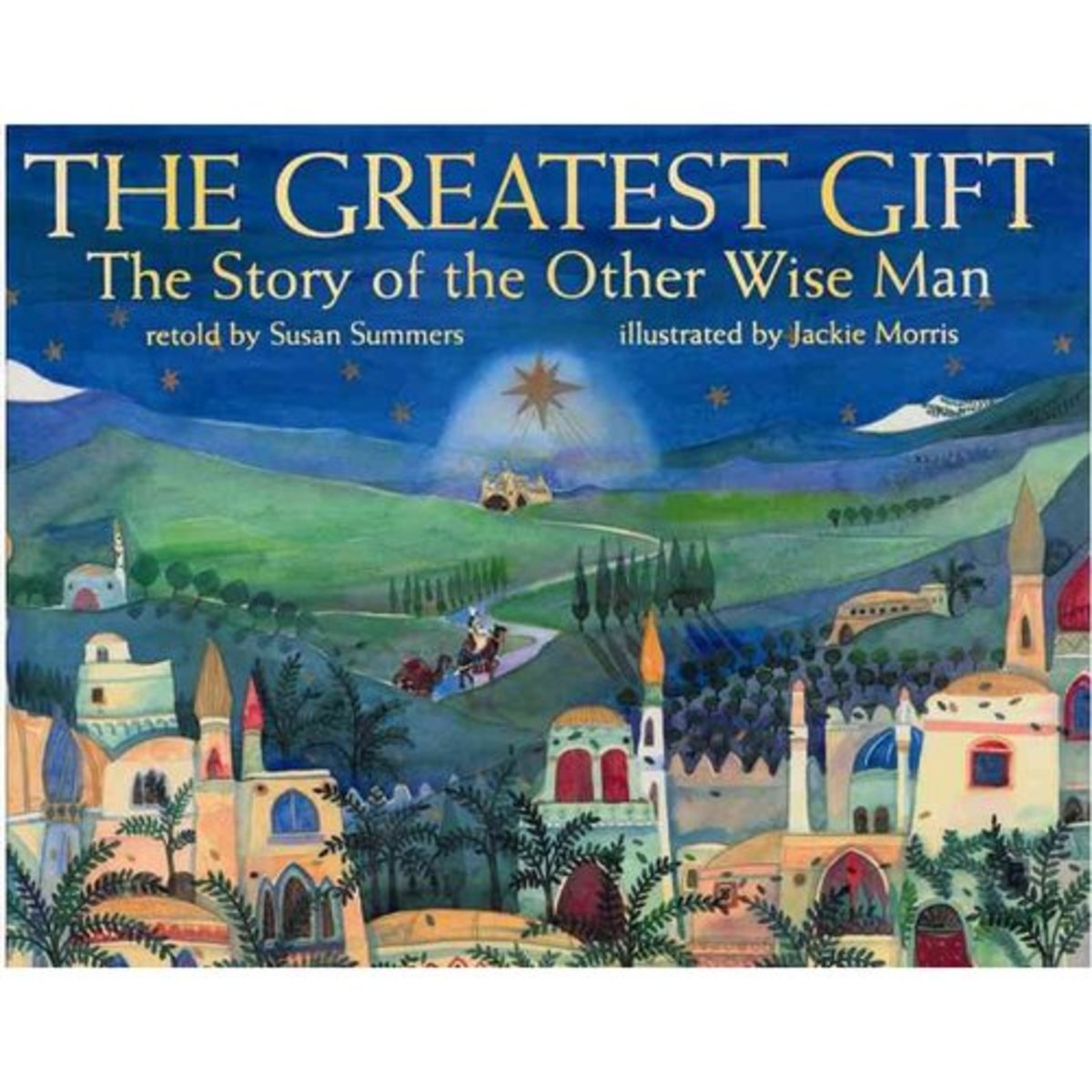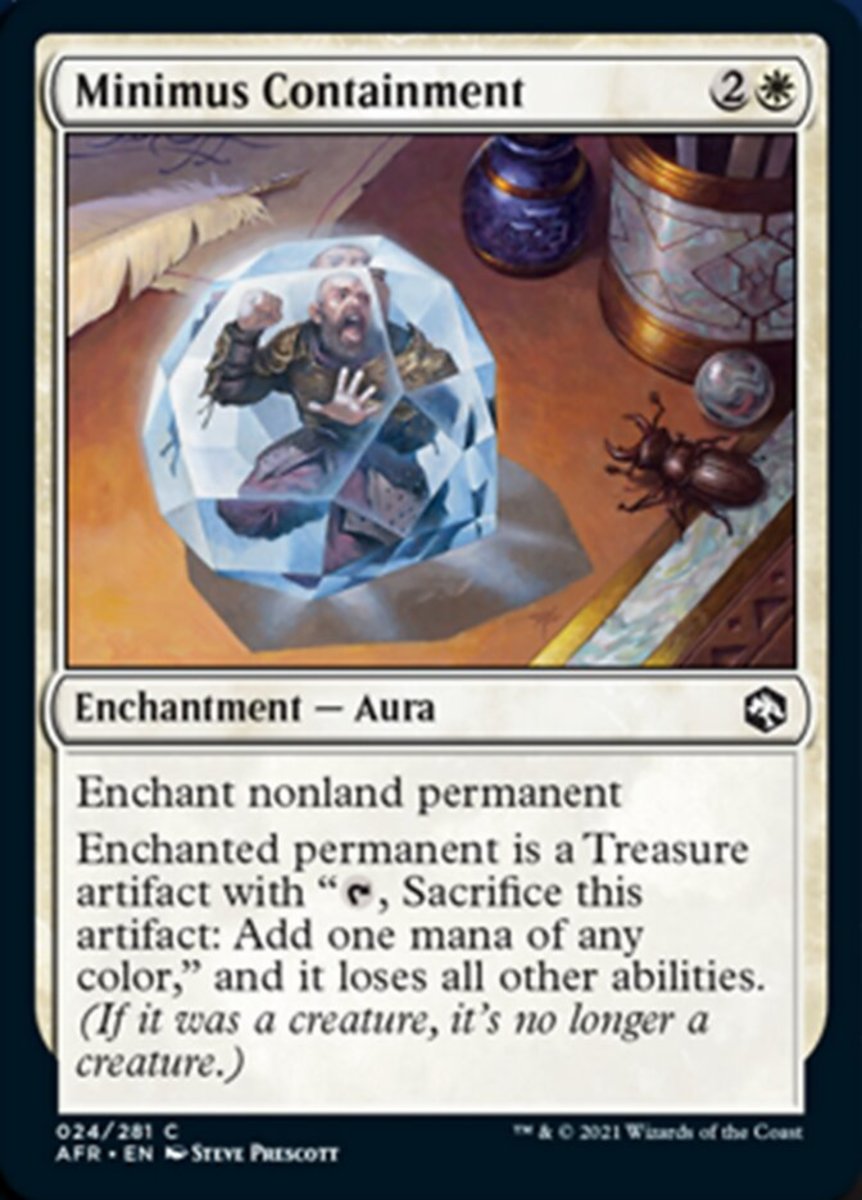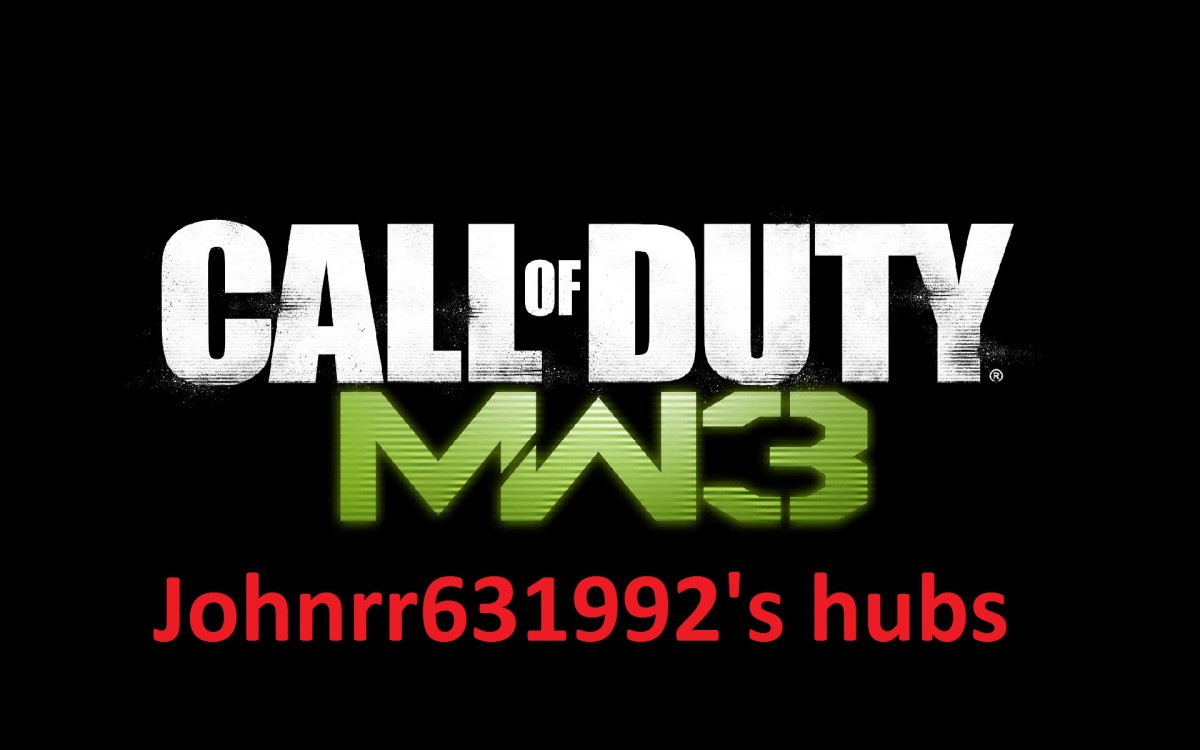- HubPages»
- Games, Toys, and Hobbies»
- Computer & Video Games»
- Online Video Games
When Worlds End - Eulogy for Vanguard Saga of Heroes and the Forgotten Realms of Telon
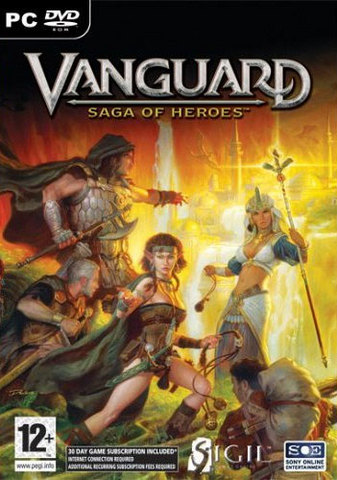
"I drifted, neither awake, nor asleep... neither in body, nor in mind. I couldn't see, but then worlds and stars took shape about me and I knew they were there. I could feel them… almost reach out, had I an arm and a hand, to touch them. Where was I? And who was I? And so I drifted still, with no concept of time or duration… But, all the while, I felt myself drawn to something... or somewhere… And I was very afraid… because I remembered then who I was: Aradune Mithara, the Ranger, the Outrider."
- From the opening to Vanguard’s lore & history of the planet Telon
Aradune Mithara has awakened in other universes… Many know of Mithara as a mysterious ranger from an older universe he forged, home to the planet Norrath and the now disbanded guild Crimson Sigil. On Norrath, Mithara was chosen to be the Avatar of Storms, under the god Karana.
Mithara is known of course by different names, and the mortals of this our flesh and blood universe refer to him as – well – as Brad. His “guild” here was Sigil Games Online where he was CEO and Executive Producer of Vanguard: Saga of Heroes, a “universe discovery and colonization project” known as a Massively Multiplayer Online game (MMO). A few other Norrath veterans joined up with Mithara over seven years ago on his quest, namely Jeff Butler, who was behind the “discovery” on Norrath of the Ruins of Kunark, The Shadows of Luclin and The Scars of Velious. The massively detailed world of Telon that they created is now lost, with the tombstone dated July 31, 2014.
Mithara means “thought-force” to those of the ancient Iranian pre-messianic religion of Zoroastrian. It’s Arab followers once numbered in the millions. The feast of Mithara was one of the great Persian festivals lasting six days. It’s celebrated today as Mihirjan across Arabia. Everyone has heard of at least three Zoroastrian magi, they were the three wise men – Zoroastrian astrologers actually – who figured out why that “stranger from the manger” was here.
Anyone who has ever explored a fantasy world can tell you - names hold power. The etymology – word origin – of Mithara sheds light on some of the vast thought force that has gone into developing Vanguard: Saga of Heroes over the last decade since Brad and Jeff left behind EverQuest to form Sigil. Vanguard's birth was announced on March 16, 2004 — exactly five years after EverQuest was released. Mithara soon struck a deal for Sigil to co-publish and distribute Vanguard through Sony Online Entertainment (SOE).
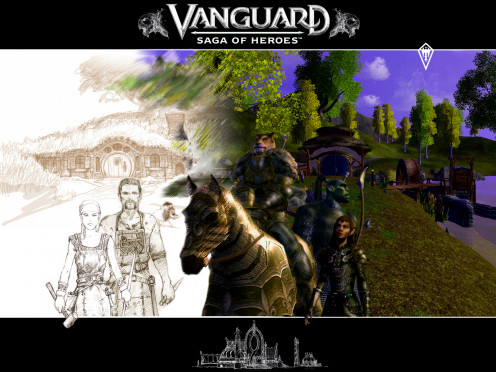
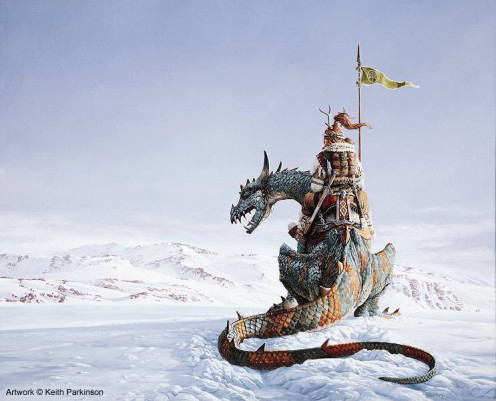
The Lost World of Telon
Brad’s alter ego Aradune Mithara originated in the teenage stories of the young Brad McQuaid, thus one could say the world of Telon – Vanguard universe’s planet – had been taking shape for a long long time… before being banished to oblivion by Sony.
“We're escaping to a world that is a fantasy,” explained Aradune Mithara on Vanguard’s forums before the game's official launch, “and it should have its own history, religions, creatures, fables, mythology and the like -- while we can and do draw from RL legends and settings, we specifically just take the influence and then make it our own.” This is the philosophy behind many famous fantasy worlds from literature, like Tolkien’s Middle-Earth and Narnia from C.S. Lewis.
“For example,” continues Mithara, “with Qalia, we've said it has an Arabian Night's feel, and that you'll encounter Egyptian architecture, Persian influence, Phoenician, etc. But at the same time, we're still making it Qalian and distinct enough to call our own...”
Tolkien famously remarked that, “It is easy to imagine a green sun. It is difficult to imagine a world where it would look natural.” The legendary fantasy illustrator Keith Parkinson served as Art Director at Sigil since 2002. Parkinson passed before the official birth of his world Telon and is still Art Director in memoriam at Sigil. His lands of Telon did in fact come to life and did justice to the words used to describe the world:
The sands of Qalia have seen the rise and fall of many ambitious empires. Intrepid adventurers tell of fantastic ruins that stand as silent witness to the power and knowledge of the ancient Qalians. The Mordebi and Qaliathari empires have sunk beneath the seas and sands; but their memory and their accomplishments still resonate in the hearts of the nomads and city dwellers alike.
The continent is one of extremes. Fierce sandstorms. Harsh sun-blasted deserts. Titanic mountain ranges that loom over the deserts. These define the landscape of Qalia. Qalia is a land of legends, myths, and ancient superstitions. Tales of great wars, gods, monsters, and heroes have been passed down since before the cataclysm. Many of these tales are woven with threads of truth; while others are pure imagination Minor heroes have been elevated by the legends, while great artifacts of power have been dismissed as mere myths.
Vanguard's player community learned that everything you just read – just about ANYTHING you can see – you can go explore. One could say that the gaming philosophy in operation at Sigil when creating Telon was that “the snozberries taste like snozberries!” Vanguard created “a truly seamless world where you can see for miles.” The world “feels” big and was big, but not vast repetitive nothingness or sameness like the massive zones in other MMO's like Elder Scrolls Online, there was a dizzying deeply thought out ecology to Telon that matched its multi-layered mythology.
Telon is a large world with a myriad of larger landmasses, smaller island-continents, and archipelagos strewn about its oceans and seas. Pretty much every conceivable environment exists, including plains and fields, mountains, swamps, deserts, and much more.
The world is inhabited by all sorts of creatures, some sentient, some merely beasts, and some in-between. The intelligent creatures differ greatly in culture and religion. They worship strange gods and goddesses whose very existence is a matter of some debate.
The most developed continent Thestra was home to elves, humans and others. In the beginning there was also the mysterious continents of Qalia and Kojan. Thestra history tells that it was invaded by an army of undead which forced the continent's inhabitants to flee their old cities and settle new lands.
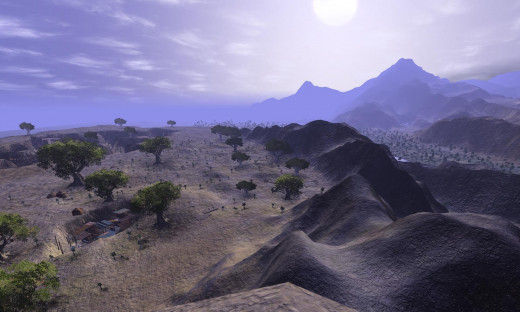
The Rise and Fall of Telon's Cities
Telon in the old Gothic of our universe means danger or harm. In Vanguard’s Telon, death, like in the old MMO days, exacted a price. Death meant corpse retrieval but with the ability to locate all your unlooted corpses laying around Telon in your “Travel Journal” - yet you still had to fight back to your tombstone.
Telón in the Spanish of our universe means the “stage curtain”. Mithara and the other wizards behind this curtain made sure that life on Telon was of your making:
Characters will not only own buildings and vehicles, but they will also whisper into the ears of kings, manipulate the hand of justice, and change the direction of history. They will make their mark on a world we initially create but they ultimately shape and form.
In addition to owning buildings on a character level, player-controlled villages and cities appeared over the seven years of the world's existence and dotted the face of Telon. Elements of RTS games, like Age of Empires, influenced the developers. Player cities advanced in technology levels, and moving the entire city en masse to dangerous locals was necessary to achieve the highest level cities. A city's technology level limited the kinds of crafting recipes which could be performed - and even created through experimentation - in the city.
“My most recent experiment was a success! I blended common Horsetail with the new strain of Meadowsweet I found along the shores of the Bernanid. The result is a new plant which I am calling Greenleaf for lack of a better name… substituting Greenleaf for Meadowsweet in each remedy that calls for the latter, yields better and more pronounced effects in each case.” – Journal of Ginna Dalton, pg. 104
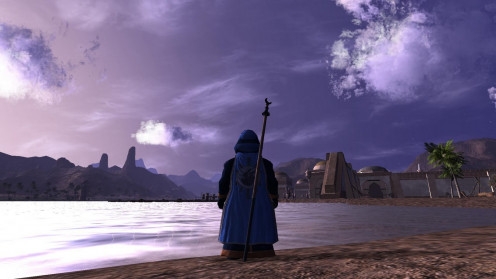
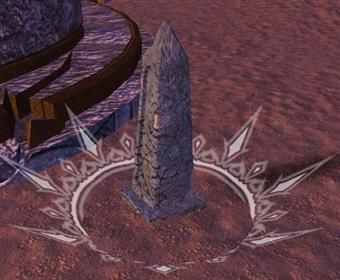
Telon's Forgotten Warning to Future World Builders
The father of sociology 14th century Islamic scholar Ibn Khaldun, concluded that societies are living organisms that experience cyclic birth, growth, maturity, decline, and ultimately death. So it is with virtual worlds, even World of Warcraft fits the age old pattern for predicting the rise and fall of civilizations. Future world builders will look back on Telon's ambitious inception and marvel, similar to how in the Middle-Ages European society held up the dead world of Ancient Greece and Rome as a standard to aspire towards.
Anthropologists like Lewis H. Morgan, and Marxists like Friedrich Engles, linked societal changes with technological development. Being "ahead of your time" is not necessarily a good thing. Some would say that Vanguard's world Telon "died" on May 14, 2007, which is when the staff of Sigil Games Online were told to meet in their parking lot...
There the employees learned that the launch of the game had not gone well, Sigil was in financial trouble and they were selling the company to Sony Online Entertainment. Andy Platter, Sigil's Director of Production then told all the employees assembled "You're all fired." The following day, May 15, 2007, Sony Online Entertainment announced that they had acquired Sigil's "key assets". The creators of the world, like those who built the great pyramids, were simply expendable.

